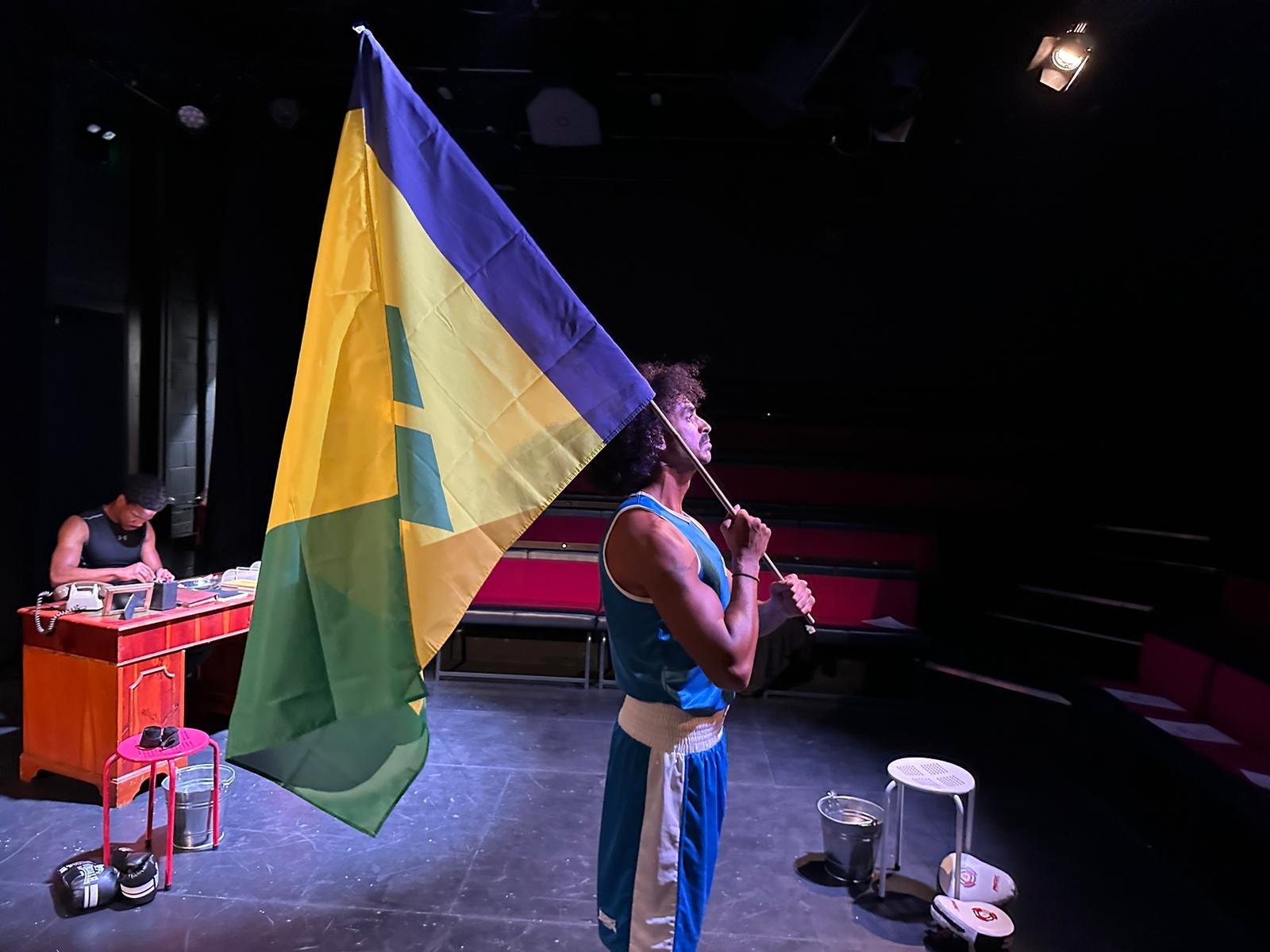
‘Southpaw’ is a term used in boxing to describe the (unorthodox) style that a naturally left-handed fighter normally employs in the ring. As a result, the fighter jabs and hooks with the (conventionally weaker) right hand; all the time, setting up the opponent for a blow from the dominant left hand.
Of course, this is a mirror image of the far-more-common right-handed pugilist. If we accept left-handers to represent approximately 27 per cent of the general population, it’s clear that ‘orthodox’ practitioners might have significant trouble preparing for the average ‘southpaw’; never mind those blessed with artistry or precociousness – no matter how flawed or fleeting.
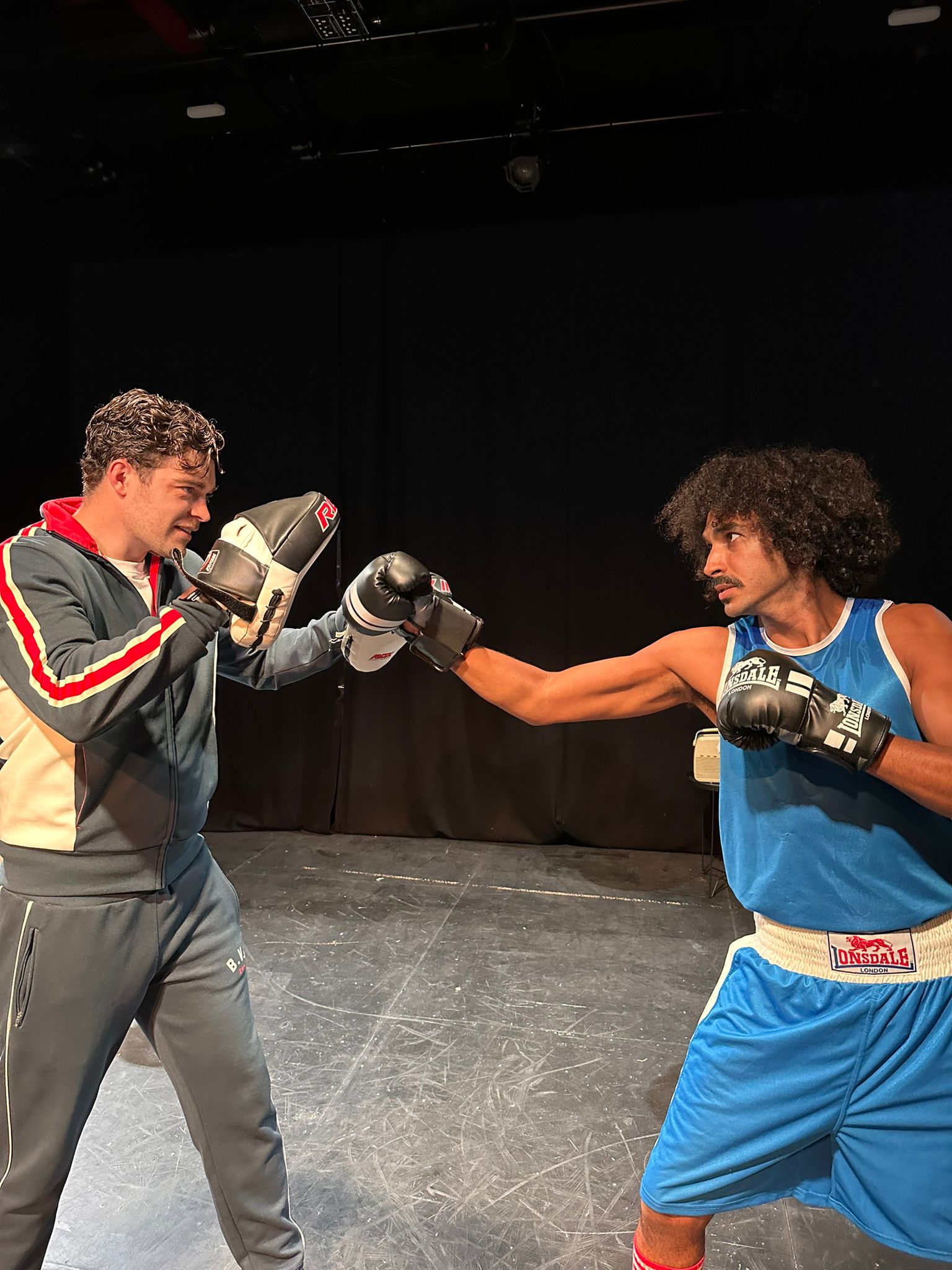
Going For Gold by Rose Hollingworth is a staged play showcasing the real-life story of Frankie Lucas, a prodigious (southpaw) boxing talent born in Saint Vincent who – having relocated in the early ‘60s to Great Britain – finds himself the victim of a stultifying mix of societal racism, and boxing’s exclusionary policies.
“the piece successfully uses fragments of music of the time to pin-point both mood and era – as well as rare existing footage of Frankie’s real-life boxing matches”.
So much so that he and his coach were forced to ‘gerrymander’ a path for him to represent St Vincent in the Commonwealth Games team, to win a gold medal (a direct result of being denied places in consecutive Olympic games squads).

Despite – or maybe because of – this, he was continually denied the high-profile fights against lesser but more established rivals which would have gained him the financial and emotional success he craved.
As a result, Frankie’s career and health – both physical and mental – deteriorated, leading to increasingly long periods of neglect and unmonitored stays within mental-health establishments.
Jazz Lintott’s performance, as boxer real-life Frankie
Lucas, is athletic, emotionally committed and absorbing.
The other actors give strong performances – specifically Cyril Blake as the first trainer/ manager ‘Ken’ and Daniel Francis-Swaby as training partner/ A.N. Other Fighter/ son ‘Michael’.
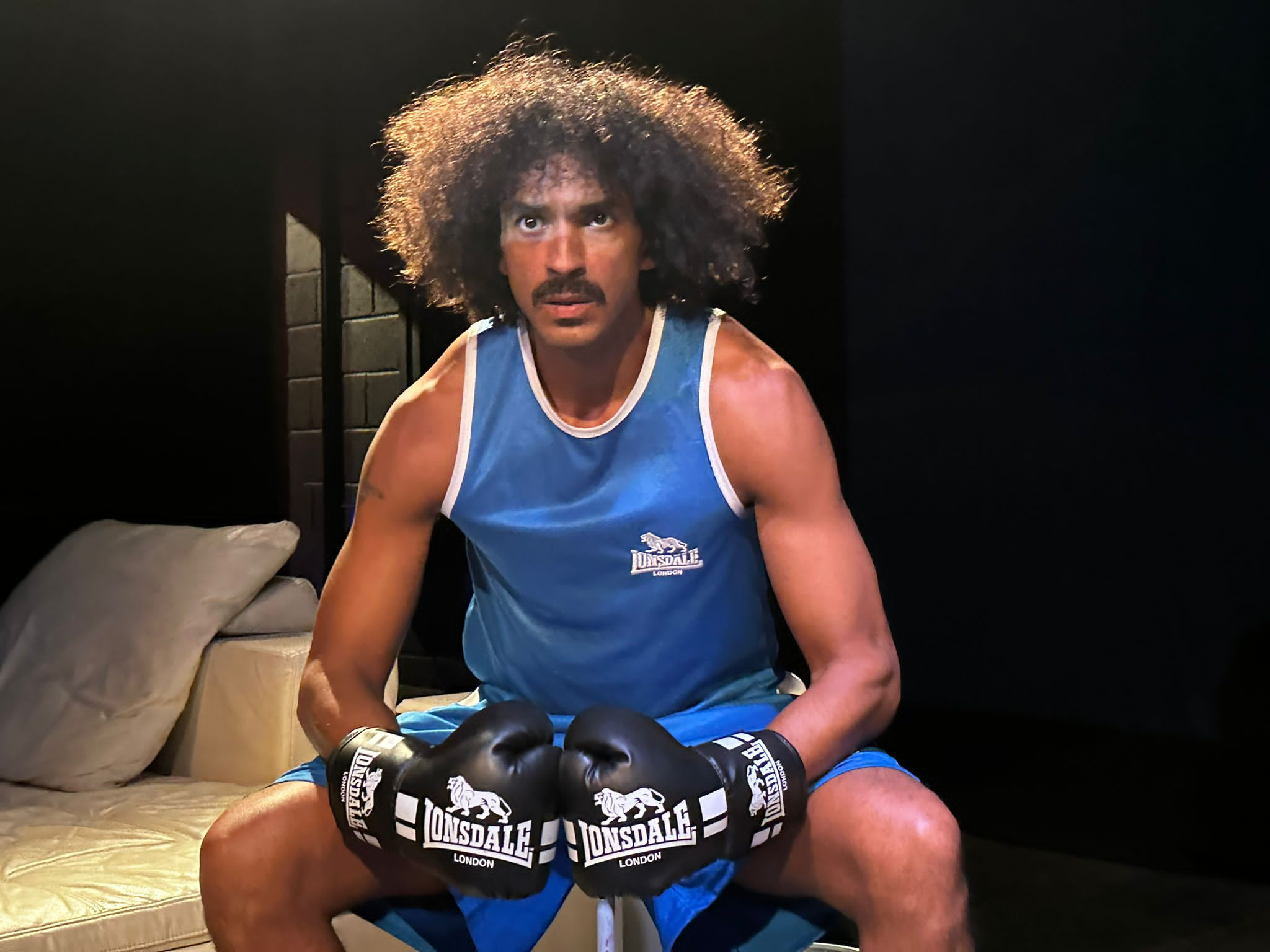
In the first act, the piece successfully uses fragments of the music of the time to pin-point mood and era – as well as rare existing footage of Frankie’s real-life boxing matches – to augment the story shifts.
Too often – in the first act – the piece resembles a made-for-TV biopic; the narrative straying from the central character, to present the subjective points-of-view of his two (white) ex-trainer / managers, and Marissa Joseph’s narration.
“Jazz Lintott’s performance, as boxer real-life Frankie Lucas, is athletic, emotionally committed and absorbing”.
In a medium where ‘show-don’t tell’ is king, these viewpoint shifts add little to the understanding of – what is admittedly – an interesting central character.
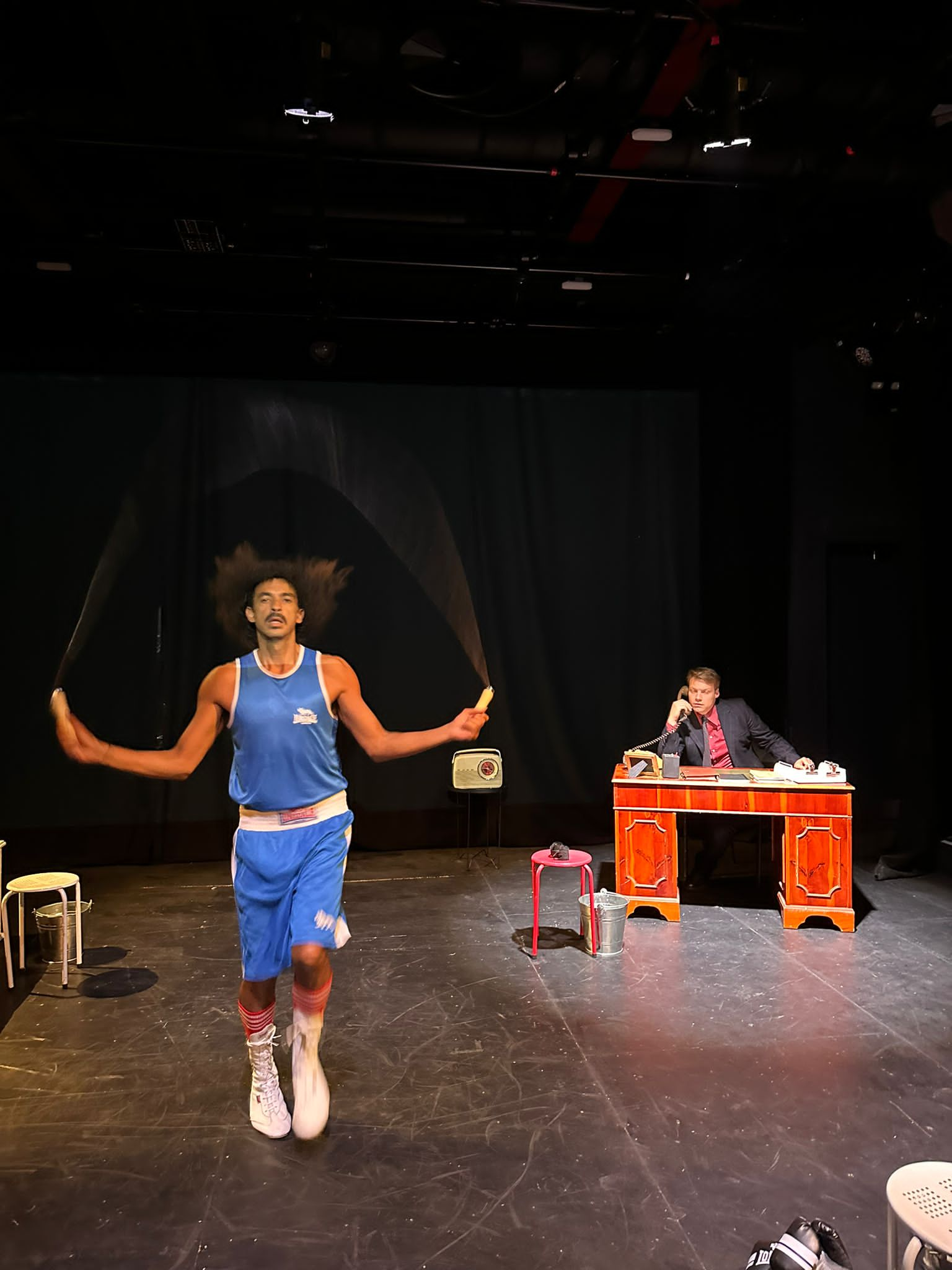
In the second act, the directorial devices are streamlined considerably. It is a stripped-down examination of – ostensibly – his two most influential relationships. Despite Jazz Lintott’s committed performance, one is left with the feeling that only the real Frankie truly knew the depths to which his demons dragged him down – therefore, only he knew the strength required to keep him aloft.
Ultimately, he was unable to sustain his posture forever. Thankfully, he garnered sufficient love and goodwill in his life, that his story outlived him. Indeed, one is resilient enough to be transformed from one art form to another.
I salute him and – in the name of other ‘unknown fighters’ and those who toiled to get his story told.





























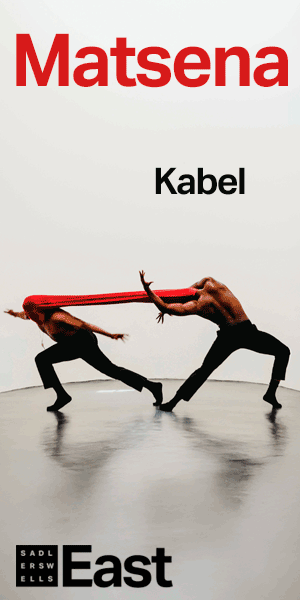
![The Wolves Francesca Henry (#2) in The Wolves at Theatre Royal Stratford East. [Photos by Manuel Harlan]](https://www.afridiziak.com/wp-content/uploads/2019/09/Francesca-Henry-2-in-The-Wolves-at-Theatre-Royal-Stratford-East.-Photos-by-Manuel-Harlan-324x160.jpg)